You are here
Is It Worth It to Write a Craft Book?
Image by Denise Krebs, via Flickr
For the past five years, I've heard from lots of people who are interested in writing a craft book. But interestingly, the questions these folks ask me are starting to shift. I used to get asked how to break into writing craft books. Now, the question is more likely to be, "Is it worth it to write a craft book?"
Obviously, any question of whether something's "worth it" needs you to define what worth-itness means for you. But since I don't know your definition, I'll speak generally (and honestly): craft-book-writing is worth it in many ways, but probably not in the monetary one.
I'll get to the ways craft-book writing IS worth it later in this post. But first I'd like to wade into those financial waters and give you a real-life picture.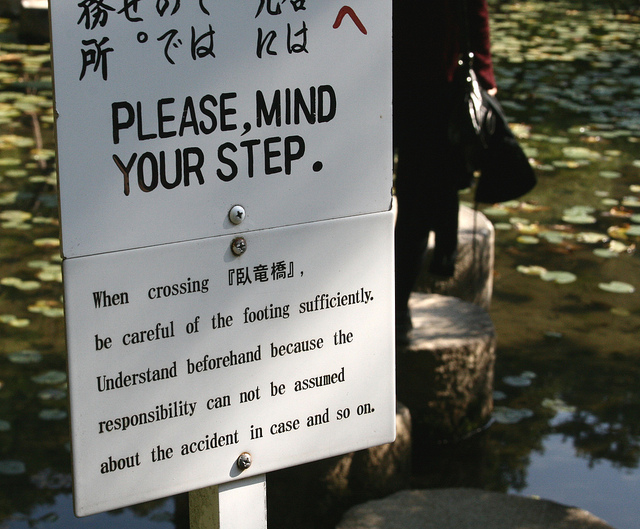
Image by Niklas Barsk, via Flickr
…But before I do, let me also say this: I don't mean any disparagement to any publisher here (and especially not my current publisher, Storey, whom I dearly love). I'm not trying to tell you that publishers are out to screw you, nor am I warning you against writing craft books. What I am saying is that the craft book market is up against real challenges, and as a result there just isn't much money in writing books anymore.
Image by HelenCobain, via Flickr
Let's Talk Advances
I feel like the folks who approach me with questions are getting savvier about what a book advance means, but let me run over some basics, just in case.
First, a book advance may seem like a big chunk of cash, but you can't actually have all that cash yourself. A bunch of things have to come out of that check:
- • Taxes (which take up to a third of that check)
- • Agent fees, if you have an agent (That's another 15%. So, that plus taxes eats 45% of your advance right away.)
- • Supplies for writing your book (These vary wildly, but might include expensive equipment, software, and contract services as well as craft supplies.)
Image by Eric Gjerde, via Flickr
…So, by way of example, I received a $10,000.00 advance for Kanzashi In Bloom. Some of you will think $10K is a huge amount, and some of you will think it's tiny. I think it's worth mentioning that, unless you have a huge online audience, book advances in general are shrinking. For the last book proposal my agent shopped to various publishers, I had some offers in the $5000.00 to $8000.00 range, even though I was already an experienced author. I've even heard that some publishers are forgoing the advance altogether, but personally, I would never take that deal.
Anyway, back to that $10K Kanzashi advance. By the time I paid the taxes, my agent, and supply bills, I had about $4700.00 left. (I could have saved on supplies by asking companies to donate them in exchange for a credit in the book, but I didn't know this yet.)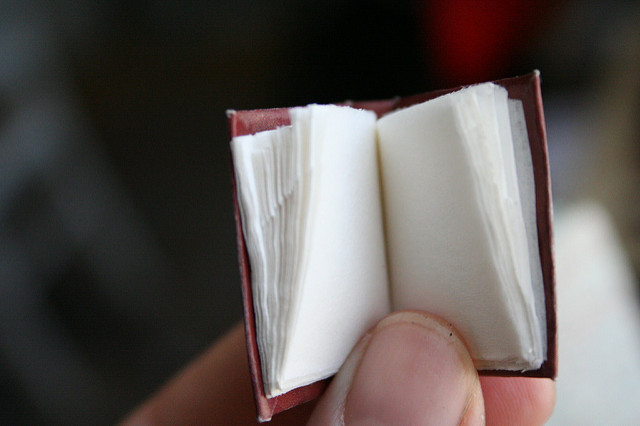
Image by Kelly Taylor, via Flickr
Now, when you take what's left of your advance and divide it into the number of hours you'll spend actually producing that book, there's where things get pretty grim. Because it takes hundreds of hours to write a book, what with all the designing, making, and manuscript prep. Depending on the book, there might also be weeks of photo shoots, or weeks of illustrating.
Once the manuscript is done, there are more hours to come: several rounds of edits/proofing, and then many hours of marketing activity, including building and maintaining a book website, planning events, travel, etc. When it's all said and done, you'll be lucky if you end up having earned minimum wage. (I earned about five bucks an hour writing Kanzashi In Bloom.)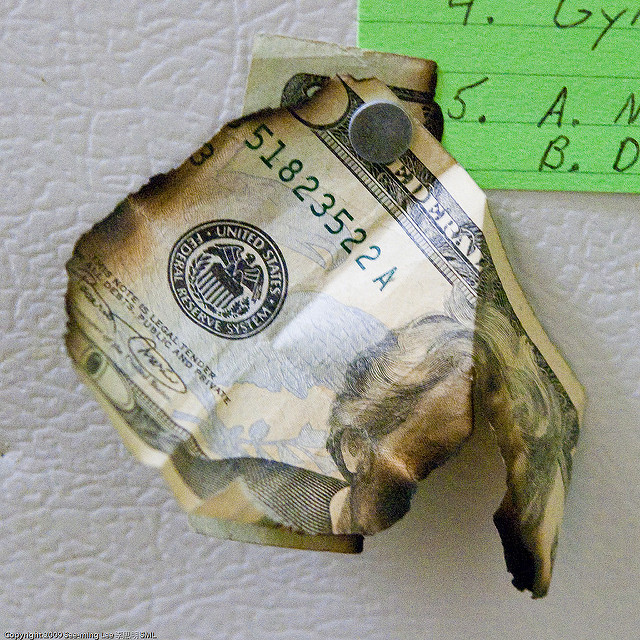
Image by See-ming Lee, via Flickr
Here's another thing about advances that not enough people talk about: they are unlikely to be paid out in one lump sum, or for that matter in "advance." When I did Quilting Happiness, for example, my advance was paid out in five installments – and two of them happened after the book was published. So not only is your advance smaller after expenses, it's also sliced into even smaller chunks and you might not have access to all of it while you're writing the book.
(You can negotiate to some extent for a payment schedule that meets your needs, but generally speaking, the bigger the advance, the more pieces your publisher will want to slice it into.)
Technically speaking, the advance is supposed to help cover your costs and living expenses while you produce your book, but given all these slices and dices, it really can't do that. Which brings me to another potential financial problem with book-writing….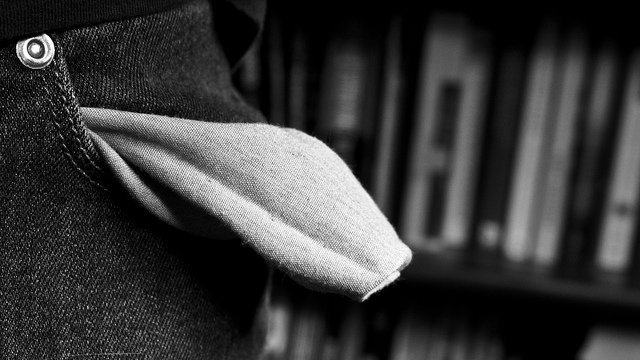
Image by Sharon Drummond, via Flickr
Your earning ability while you're writing the book
This is another subject I don't think enough people talk about. If you make your living as a freelancer or an online shop-owner, then writing a book can actually be step backward financially.
Here's what I mean: I've had an average of ten months to produce each of my three books. Typically I've worked part-time hours on a book for the first seven months while maintaining my other business on the side. It's those last three months that become financially problematic. If you have some kind of steady paycheck coming in, you can weather them pretty easily. But if you depend on irregular income, then those final months of all-consuming book work will squeeze out your ability to produce other money.
Image by Andrés Þór, via Flickr
As a freelancer, I can tell you that there's been a point near the end of every one of my book projects where the advance money I've been paid has run out and, because I've been so busy with the book, I haven't been able to bring other income in. So not only am I on book deadline, I'm scrambling to pay my rent. And once I turn the book in and begin producing my regular income again, there's a month (or more) of lag time before I get paid for that work. So it's usually a pretty thin and stressful time.
Honestly, I'm getting to the point where I recommend book-writing primarily for people with day jobs! Or, that freelancers sock away a good chunk of savings to cover them through the interim.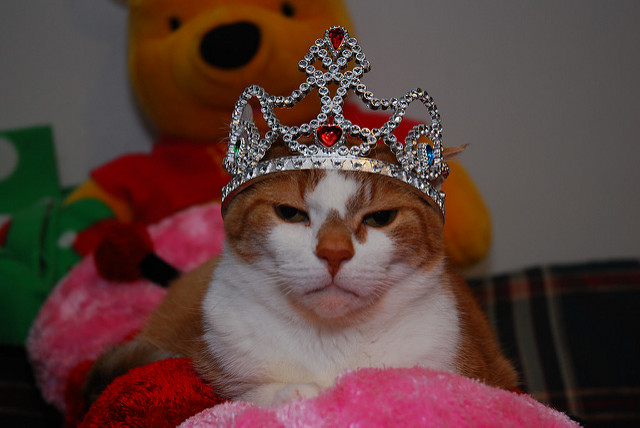
Image by Shaeree, via Flickr
…But you get royalties, right?
I think people are getting savvier about royalties too, but just in case: Sorry, the answer is "not that often". I was lucky enough to see Kanzashi In Bloom "earn out" its advance and start earning royalties. The book was published in 2009, I received my first royalty in 2011, and I've received two royalty checks per year since. (The first was over $1000.00, and they've declined a bit in size each time since then.)
On the one hand, this is awesome. But it's important to understand that I still have to take taxes and agent fees from each of these checks – so essentially, again, they're cut nearly in half. But whatever - I'll happily take all the royalties Kanzashi has left in it. K and I like to joke that, thanks to the royalties, I made $6.00 per hour writing that book instead of $5.00 per hour.
Quilting Happiness, on the other hand, doesn't look likely to earn out. I love and believe in that book, but let's face it – the quilting market is very crowded and celebrity-driven right now. Every new quilting book has so much competition, and publishers are pumping out new ones all the time. So it's harder to get the sales you need in order to earn out.
(There weren't any U.S. books on Kanzashi when I wrote Kanzashi In Bloom, however, and that really helped sales.)
Of course, there is one easy route to earning royalties, and that's taking only a tiny advance or none at all. But I don't like that gamble. I don't believe anyone should do hundreds of hours of work up front for no money, based on the promise of possible future money. Regardless of how well or poorly a book sells, the writing and design work deserve compensation, period.
Image by Marco Bijdevaate, via Flickr
So why don't publishers pay more?!
There are legends from 2005, when the new, irreverent brand of crafter got $50,000.00 book advances. Those were good days... for authors. Unfortunately, the books didn't sell well and those big advances started shrinking. And that's not because publishers are greedy.
You have to consider what a publisher is up against in this craft-book landscape. As I've pointed out in other posts, your publisher is making a huge investment in your book. Aside from the advance payments to you, they're funding several kinds of professional editors and designers. They're often paying for professional photography, and sometimes for professional illustration. Oh, and they're funding the print run. And they're paying the costs to sell and ship those books to retailers.
Why aren't advances bigger? Because a publisher can only make so much investment in a new book. If that book never sells enough copies to cover costs, then the publisher loses money. If every craft book sold millions of copies, there'd be a lot more money to spread around, but every book doesn't sell millions.
…Which brings us, of course, to the internet and how it's affected craft book sales. Simply put: are you buying more craft books than you did ten years ago, or fewer?
The way we crafters consume how-to information has irrevocably changed. We may love the idea of real craft books, but we also rely on them less than we used to. And therein lies the rub, both for publishers and authors.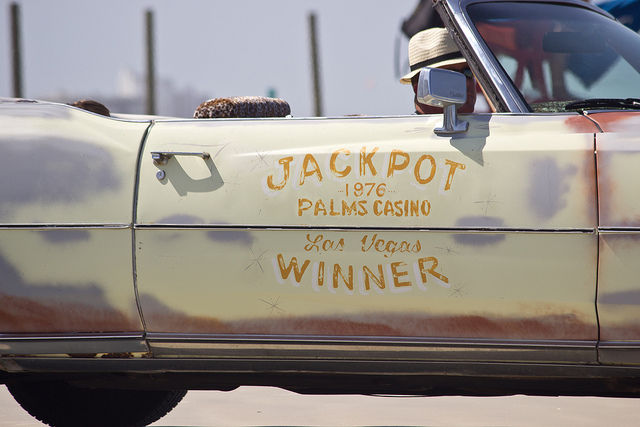
Image by Christina VanMeter, via Flickr
So, what DO you get from writing craft books?
OK, so with all that said, remember that I'm not telling you that you shouldn't pursue writing a craft book! I'm just hoping to clarify the financial part so you can make a more informed decision as to why you're writing.
Here are the benefits of craft-book authoring I see:
- • Because a publisher has access to markets beyond what you can reach on your own, a book can be a way to reach new potential customers for another business you already have. (Assuming you get good marketing support from your publisher, which is something you should look into before you sign a contract.)
- • Book-writing pushes you creatively in a big way. In the process of writing a book, I always end up developing a whole set of other ideas I end up using professionally later on.
- • Having a new book out gives you an excellent reason to participate in craft industry events and trade shows, where you can make beneficial new connections.
- • A book is a good member of a connected universe of products and services that you offer. If someone likes your online shop, they might buy your book – and vice versa. A book is also a good "calling card" for introducing yourself to editors and gatekeepers who might hire you for freelance work.
Image by Carol Alejandra Hernández Sánchez, via Flickr
…But none of these benefits of book-writing is magically conferred on you as a result of being a published author! They all require a lot of careful planning and elbow grease on your part to materialize – not to mention, some viable way of keeping a roof over your head while you're materializing.
I think that, for craft-book writing to be "worth it," you need to have some kind of long-range plan for how that book will help you do something else. Craft book-writing in itself is not a path to a sustainable income. But it can help you get there.
My books have all felt "worth it" in this sense.
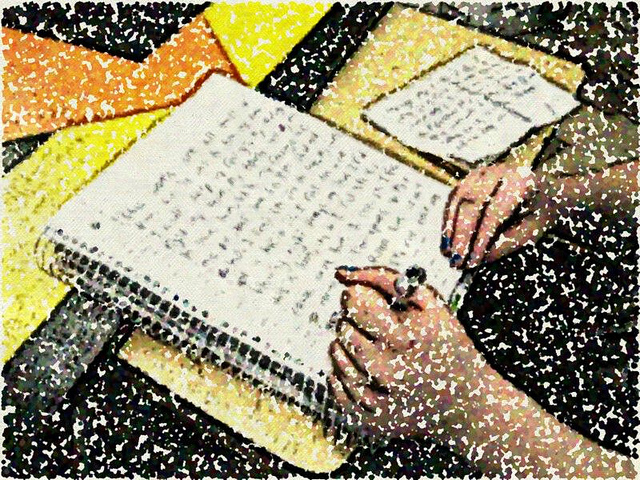
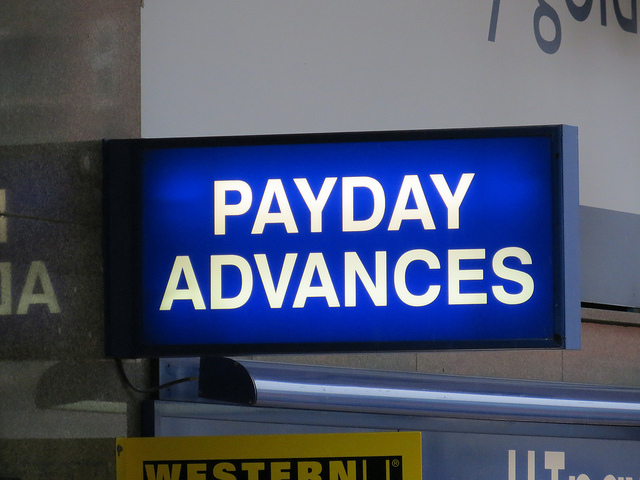
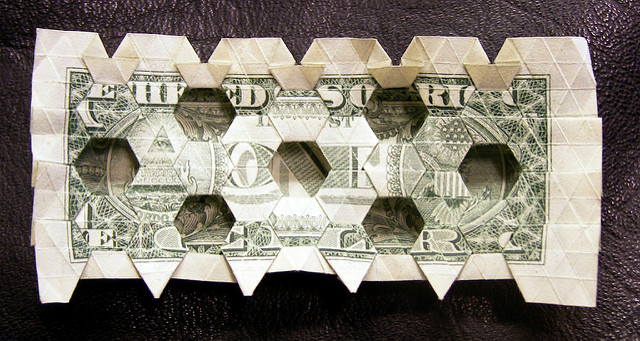
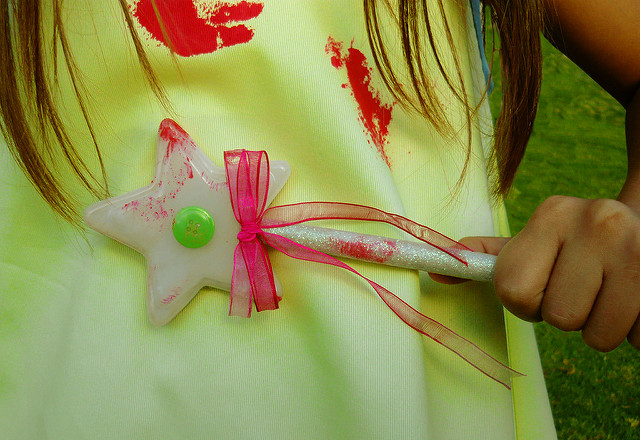

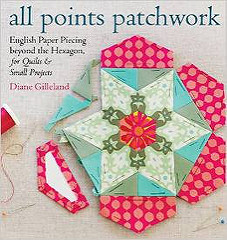
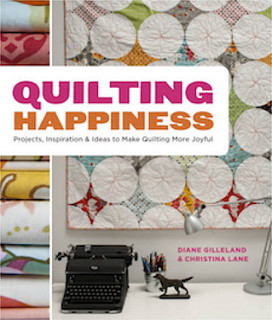
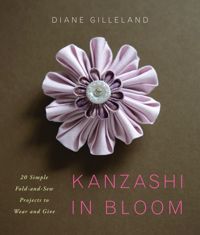
![Validate my RSS feed [Valid RSS]](../../../sites/files_cp7/valid-rss.png)
Comments
Something publishers don't share, not even with their authors, is the total budget they've allocated for each book. I'm not clear why this is such a closely guarded secret. I think if they did share it would help authors and the general public to better understand the economics of craft book publishing. An editor once told me that the average budget for a craft book is $25,000. That covers everything, including the author's advance, photography, editing, layout, design, and marketing.
For about the same amount a site like Craftsy can produce a video class that's less work for the designer to prepare, has a shorter time frame from inception to completion, and results in higher earnings for the author. I think video is the a great fit for craft instruction from a consumer's point of view, and to me that's where the excitement and energy in craft media is heading.
I agree about video, Abby, sad as it makes me. :-) I'm part of the generation of crafters for whom books still convey a certain magic... but truth be known, when I need to learn a technique or get a question answered anymore, my first stop is the internet. I keep my books primarily as inspiration-joggers, and thumb through stacks of them leisurely when I need a creative recharge.
I think there's huge possibility in apps as well for crafty how-to, but understanding that producing one requires a lot of programming muscle as well as instructional skill, I can see why it's taking the industry a long time to embrace apps.
I wish it weren't true, but I'm a perfect example of Abby's point. My knitting book will never produce royalties and my Craftsy class brought in more than I ever expected. The Craftsy classes are my new cred calling card. I still dearly love the book we made and wish the financials worked the other way round. Still, there's something to be said for googling my name and finding my amazon listing. :)
Bang on.
Plus, I just enjoy doing it.
One other benefit you missed and has been one of the largest for me is teaching opportunities and rates. Being a published author gives me publicity for teaching that I never would have had before. It also allowed me to drastically increase the rates I charge for teaching. They are still fair rates, but it is a big difference.
Excellent point, Cheryl - thanks for bringing that up. And I'm with you - I thoroughly enjoy the process of making a craft book. If it were possible to make a sustainable living at it, that's what I'd be doing all the time.
This was such an informative article - thank you. But I have another question (of course). Do craft book publishers troll the self-publishing landscape to find authors? I've bought quite a few self-published books from Amazon on various crafts; the quality of these books run from completely horrendous and unreadable, to absolutely great and full of useable information. I mean, we all know what happened with the 50 Shades and Hunger Games phenomena...self-published author plucked from Amazon obscurity and catapulted to fame and fortune, right? Is it possible we might someday see "50 Shades of Crochet"?! (I'll pause for our collective groan over that comment.) I'm so curious about whether a craft book publisher would ever have the opportunity to see a self-published book and say, hey we need to make an offer to this gal, she knows her stuff!
Hi, Donna - Oh, I think that agents and publishers absolutely troll the internet for talent. I've mostly seen that in action with bloggers, but I wouldn't be surprised if something similar happens with self-published authors. Maybe another commenter has some direct experience and can chime in.
I can chime in here... I have self-published (traditional offset printed with industry and Amazon distribution) four craft books in the last five years, and I have been approached directly by three of the biggest craft book publishers in the business. Although I feel like I am charting new territory in this venture, it seems self publishing is more advantageous both creatively and financially, and so I didn't feel "right" about accepting the offers of wine-ing and dine-ing knowing that I wasn't interested in changing my path. I will say it was a huge boost for this newbie to hear, at my first TNNA show, "I would have loved to have published this book" from Random House. Thanks for your honesty in this post, Diane. Very well written.
Thank you so much, Joanna - really appreciate you sharing your experiences. Congratulations on your success with self-publishing!
I used to design and sell craft patterns to magazines and it was hard work. What with coming up with a unique pattern, writing up the instructions, and the materials list, there is a lot of work involved. I don't think I'd have the stamina to do an entire craft book. Good post!
Thank you for such an informative article! I have long been a writer and I have always wanted to write a book. Wanted being the key word in that, I've never pursued the idea at all. I love books and craft books and while video is good, I will miss books if we reach the time when they stop being published. I can't even believe I wrote that! Books are not going away! Okay, feel better. Video is exciting and I love the various classes I've taken, but I just love having a book to browse through.
Thanks for such a smart and honest post about this, Diane. I've seen so many close friends go through the craft book writing process, and it's made me less and less eager to try to write one myself. I've finally gotten to the point that I'd only write a book that meets two criteria: 1) I would have an absolute ball spending that much time being knee-deep in a subject (gotta have fun!) and 2) it's something that has the potential to actually make money (so it's something that's not already super saturated in the market, and it has a wide audience outside of my own crafty circles). That narrows things quiiiiiiite a bit, but I'm ok with that. I have ideas for books that could fit that bill, and when I feel like things are in a place in my life where I could handle the insanity of writing/marketing a book, I'll jump. Until then, I'll just enjoy and support the books of my friends!
And re: unknowns being plucked from blogs or amazon and being catapulted to fame and fortune, I just don't see the fortune part happening ... I'd be very curious to see studies on the financial success of craft books, and would be surprised if much else besides things on the level of Martha Stewart could get close to generating income that could even touch popular fiction. As long as folks don't have that kind of dollar sign fantasy, I imagine it can be a great and worthwhile endeavor. There are so many great folks in the craft book industry (publishers, agents, etc.) that it could be very fulfilling. Just not much of a money maker, sadly.
Great post! I often get my parents' friends asking me if I plan on writing a craft book, and they always seem a bit puzzled when I try to explain that self publishing individual patterns as PDFs is more financially reliable path at the moment. But I'd still like to write a book one day. For some reason it seems like a status symbol to have a book available, and I'd like to be able to say that I have a book, but that's kind of a silly reason to invest all of that time into a project.
True, Andi (and several other commenters below) - I'm definitely seeing more designers and writers sell their work in for form of PDF patterns, direct to the consumer. I've just started this myself, and even in the very short time I've been at it, I can see that it will generate more profit than writing a whole book. It's sad to see even more competition for regular books, but then again, I like that this competition might push publishers to make those books more special, more useful, and more worthy of the bigger purchase.
Excellent article. I will keep it in the bank for whenever I get asked that question. I first worked in craft publishing in the Eighties, before the Internet! Even then very very few authors made a return that anyone would consider 'worth' the hours and the work. But a tiny handful were able to make really good earnings. Now, that's not possible because books have been devalued by discounting so the publishers can't make a reasonable profit even on books that sell well. And the Internet is too great a competitor. As you say, the value in being a published author was always in the way it raised an author's profile and helped in other business enterprises. An author can build a business in parallel with building a list of published titles. I particularly like your comment about how book writing pushes you creatively. As an editor working with designers I love being part of that process of extending horizons. Here at Vivebooks we have a different publishing model, where we refuse to sell at high discount so our titles are not discounted by the online retailers, and our authors are making money on sales through affiliates links to our website. We cannot afford to pay advances, as our ebooks with video are very specialist, but we pay very good percentage royalties. If the book does 'well', so does the author. Of course, that means our authors have to write their books in their 'spare time' while making a living through other means, but that has always been true for the majority of authors, even before the Internet. An author once asked me how other authors managed to find the time to write their books and I didn't have the heart to tell him they mostly wrote in the middle of the night! Here in the UK, publishers are more likely to pay a flat fee up front and no royalties at all, which gives no incentive to create a great book and is very unfair as the author has no share in any profits. Thanks for writing this.
I happily bought the Kanzashi book, but have to admit that with so many tutorials out on the internet, both free and for a fee - I find myself doing that more than buying books. Of course every so often a book comes out that I feel I would really like (often an embroidery book that has a lot of good photos for inspiration). But with the crowded field of craft books these days, I can see where publishers are becoming more wary.
Thank you for buying a copy of Kanzashi, Leah! :-D
This post couldn't have come at a better time! I just finished working on a book that included my knitting patterns, as well as patterns from contributors. I don't know how I would've completed the book in such a small time frame had it not been for the contributor patterns. A few of the contributors were inquiring about publishing a book, but I think knitting designers can make just as much money and get just as much publicity selling patterns on sites like Craftsy and Ravelry. Plus, they can take their time and make sure all the patterns are correct. I felt so rushed during the making of my knitting book that I'm scared to open it and find mistakes. Thanks again for bringing this out into the open.
This is a great post, Diane, and I agree! However one additional way that I look at it - which makes me feel better - is that I learned much more from publishing my first book that I ever would have learned if I had paid for a class to teach me how to do it. I'm guessing that my income was approx $5 or $6/ hour too, but that figure should really be enhanced by the addition of what it would have cost me to take courses that would have taught me nearly as much about writing and publishing…and I suspect adding that in would at least triple that figure.
With my second book, I really solidified what I had learned. And now, both my books are out of print, but I am moving forward with what would have been my third book - but this time the chapters will each be downloadable patterns. And instead of getting 50 cents of the $25 SRP for my book, I can set the price, and get it all. (And btw, your readers may want to know that 50 cents is pretty good…I only got .25 on the books that sold on Amazon!) Also, depending on the contract, the copyright of the book, or at least the contents, revert back to the author once the book is out of print. So then you can make the same projects up with a bit of a twist and new fabrics, and voila, another group of patterns for sale !
So yes there were LOTS of headaches with publishing (like the nightmare when the promotions person promoted my new book all over the internet with the WRONG author name, and the wrong cover- and in some cases, the incorrect title too!! Needless to say , that book was not as successful! Duh! In that case, I did my part of the work perfectly, the publisher made a big mistake, and it came out of my pocket. The book is now out of print, but some of that wrong information is still out there - once something gets out into the internet, it's there to stay!
Still, overall I would say publishing was a great experience for me, I learned a lot, and I would do it over again. Writing and publishing my two books has given me some of the coolest and most fun experiences I've ever had, and equipped me very well for what I'm doing now, all by myself. And it's nice to have the legacy of having written a book that was well loved ….
So I agree with you - if it's done for love - love of fabric, love of creativity, love of learning something new - (and not love of money, LOL!) then it can be a very successful endeavor on many levels. But I think the most important thing is to have fun! And mostly, I did.
Diane- this is such a great article so on the money or the lack there of... If I'd known all of this before writing my 1st book would I have tried? Maybe, probably. The process of writing both books was super fun, without the pressure of fulfuling a contract I never would have attempted many of the projects I put together and I really liked the parameters of doing 40 pieces around one theme. I also really dug the writing part, at least the places where I could be creative and my publishers were very supportive of me doing some things way way out of the box there, so I was able to streach myself as an artist in those ways and realize that I wasn't going to go into deficit spending to support my craft habit. A few wonderful things have come out of the process which would't have happened if I hadn't written the books- I've got a banging portfolio. My books were so niche that I'm one of the few people doing my particular kind of wacky crafts and so I've been able to speak and teach in some really cool places that I never could have had access to otherwise and through that I've met other very fringe and very fun artists and lastly seeing your name with a library of congress number attached to it is pretty freakin sweet. The trade off is not just how little you actually make from the writing but the ammount of time you spend, unpaid, marketing the book after it comes out. For me that's the biggest bummer, since I probably spent 3 times the ammount of hours writing, blogging, tweeting and doing other things to sell the books than I did writing them and those hours were pretty bitter since I really wanted to be doing other projects or writing more books than thinking of clever things to say on twitter. I absolutely love love love the pics you put with this post, so perfect, as always you inspire me.
You bring up such a great point, Shawn - I don't think any of us is prepared for just what a huge and ongoing job marketing a book ends up being. In a way, it's like taking on an unpaid part-time job that lasts multiple years!
While I would never want to write a craft book, I still LOVE to buy craft books (crafting, with all of it's accoutrements, is my drug of choice... and, I admit that I am a junkie, in this regard). And, in spite of all of the freely available patterns & tutorials, I still buy them. In fact, the internet makes buy even more. I have books my some of my favorite bloggers and I have books recommended by my favorite bloggers. I also purchase patterns and other items from the shops of many bloggers (or from shops they recommend). I may be an anomaly but, I find great joy in opening up a well put-together craft book, flipping through its pages, and finding inspiration and instruction within!
Cindy, please know how deeply you are appreciated by craft authors everywhere. We wish for lots more of you!
I find all of this valuable and useful, but am still confused. The publishers wouldn't publish craft books if they didn't make money would they? So someone's making money, just not the authors? Is this another case of creatives being undervalued? Are the publishers and agents working for $5 and $6 at the end of the day?
It would be great if someone from the publishing industry would weigh in on this question, but I'll take my best stab at it. The stats I've always seen indicate that the majority of books don't earn back their advances. The number of people I've worked with at various publishers who've been laid off definitely indicates that traditional publishing isn't necessarily prospering. I really don't think the impulse is to exploit authors. I think it has more to do with cutting as many costs as possible in order to survive. That author pay is considered an expendable cost is more of an indicator of how completely undervalued design and production work are in the craft industry in general.
As always, such a thoughtful analysis, Diane! I appreciate your honesty and sharing your thoughts. I'm about to write craft book #8 and have been really conflicted about the whole structure of working/shaping my life around a project like this, once again, but ultimately decided it was a good project I'm excited about, in a different direction than my last few books which feels fresh. Mostly, I agree with Shawn that the unpaid/relentless marketing is the worst part of my job. I love connecting with people and doing events, hate the grind of constantly self-promoting. Thankful for friends and colleagues like you who keep me inspired and feeling like there's a light at the end of the tunnel from the depths of the deadlines. xox
This is a really interesting read and your honesty about this whole subject is really refreshing. I think publishing any type of book is an expensive business and unless you're someone like JK Rowling you can't expect a big advance or to make a lot of money from doing it. It makes part of me think that ebooks are the way to go.
Very insightful post. I don't think writing a book is for me but good to know if I ever have an amazing idea. I do have to say I have been busy more craft books lately. I like having it right there in front of me while I'm working.
Thanks for sharing your experiences, Tilda. Debate does seem to rage as to whether authors need agents or not. My agent, Kate McKean has helped my individual publishing projects and my career in countless ways, and is more than worth what I pay her. But every author's experience is different, of course.
On the point about who is making money . . . In the old days, pre internet, publishers sold to the book trade, booksellers, book retailers, and there was an agreement that everyone charged the RRP. This meant that there was enough margin for the retailers to have 30-50% discount so they could make a living, and the publisher had enough return to pay their staff, overheads and a percentage (7-10%) to the author. Once heavy discounting became the norm, after the abolition of the net book agreement in the UK, publishers found that they were making little to no profit on the sales they made to the largest book retailer (naming no names), so they had to find ways of economising, and the author's contract was the easiest place to cut costs. When you know how much discount is demanded by book wholesalers and online retailers, it becomes clear why it is so difficult to make any money as a publisher or as an author. We believe that authors can only be properly rewarded if a fair price is paid for a book/ebook, but the public has got used to very cheap books.
Hi Diane,
I just saw this blog post after contributing to a post on Deanna McCool's blog (http://www.sewmccool.com/behind-scenes-craft-book-publishing/). She linked to your post here. I read through your post and the comments above, and maybe we answered some questions in those two blog posts over on Deanna's blog that would be interesting for your readers too.
Great conversation!
Susanne
I thought that was a great post - thanks for linking here, Susanne!